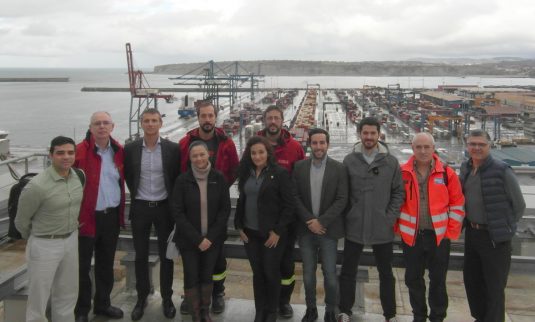The Director of the Costa Rica National Fire Service Academy, Romy La Touche, and the Operations Director of the Costa Rica Fire Brigade Luis Fernando Salas, are visiting Biscay in order to gain first-hand knowledge of training with the virtual reality simulator used by the heads of the Biscay Territorial Council’s Fire Prevention, Extinction and Salvage Service to prepare for emergency situations that may arise in the Port of Bilbao.
This morning, the Costa Rican officials met representatives of the Port Authority of Bilbao and of the Biscay Territorial Council, who pointed out the advantages of this model that enables safe training in emergencies which would be impossible to reproduce in real life, and thus provides an ideal complement to traditional drills.
The National Costa Rican Firefighting Corps have shown their interest in introducing a similar model to the one used in Biscay in training programmes for their professional and voluntary firefighters working in the 75 stations throughout the country. Their aim is to provide their staff with state of the art technology of proven efficiency.
Biscay Technology
The virtual reality simulator, financed by the Port Authority of Bilbao and developed by the Biscay firm Ludus, enables the Council’s Firefighting Service officers to be trained in real scenarios in the Port of Bilbao and to simulate different emergency situations. This first phase, which has been in operation since last March, specifically considers three different

supposed interventions in the Port of Bilbao: an accident involving a vehicle carrying hazardous goods, a fire in a Port warehouse and a prevention post.
The Territorial Council’s Fire Prevention, Extinction and Salvage Service is the first emergency service in Spain to have such technology for their training, which up to the present, was only used in the aeronautics and military sectors. The transformation that virtual technology reality has undergone in the last three years has made it accessible for developers and has allowed it to become more popular and reduce its costs.
The virtual reality simulator has supposed an 8-month investment of work and 97,000 euros in cash and forms part of the agreement signed by the Port Authority of Bilbao and the Territorial Council of Biscay. It also contributes to reinforcing the Territorial Council’s commitment to modernising its public services.

 Port access
Port access